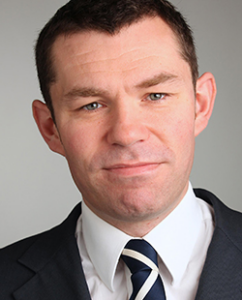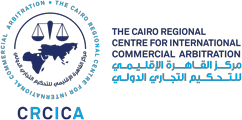Advisory Committee
CRCICA has an Advisory Committee currently consisting of a Chairperson, two (2) Vice Chairpersons, and fourteen (14) members appointed by the Director of the Centre from among the members of the Board of Trustees as well as eminent African, Asian and other personalities specialized in the fields of international arbitration, alternative dispute resolution (ADR) mechanisms and international trade.
The term of the Advisory Committee shall be four years, which may be renewed once for a similar term, unless otherwise determined due to special circumstances.
The Advisory Committee shall carry out the functions provided for in the Centre’s Arbitration Rules in force as from 15 January 2024 (the Rules) as well as any other functions that may be referred to in the Centre’s future Arbitration Rules, particularly the following:
a. Providing advice with respect to the Centre’s decision not to proceed with arbitral proceedings in whole or in part, according to article 6, paragraph 2 of the Rules;
b. Providing advice with respect to the Centre’s decision not to proceed with the appointment of any arbitrator according to article 12, paragraph 3 of the Rules;
c. Providing advice with respect to the Centre’s decision to accept or reject the Request for Consolidation in accordance with article 50, paragraphs 1 and 6 of the Rules;
d. Deciding on the removal of arbitrators according to article 13 of the Rules via an impartial and independent tripartite ad hoc committee to be composed by the Centre from among the members of the Advisory Committee without disclosing their names to the parties. The decision shall be made by the majority of votes of the members of the ad hoc Committee in writing, and shall be reasoned, final and unchallengeable;
e. Deciding on the removal of arbitrators according to article 8, paragraph 4 of Annex 3 to the Rules (Expedited Arbitration Rules) via an impartial and independent member to be selected by the Centre from among the members of the Advisory Committee without disclosing his or her name to the parties. The decision shall be made expeditiously by the member in writing and shall be reasoned, final and unchallengeable;
f. Deciding on the challenge of arbitrators according to article 14, paragraph 6 of the Rules via an impartial and independent tripartite ad hoc committee to be composed by the Centre from among the members of the Advisory Committee without disclosing their names to the parties. The decision shall be made by the majority of votes of the members of the ad hoc committee in writing and shall be reasoned, final and unchallengeable;
g. Deciding on the challenge arbitrators according to article 4, paragraph 6 of Annex 2 to the Rules (Emergency Arbitrator Rules) and article 8, paragraph 3 of Annex 3 to the Rules (Expedited Arbitration Rules) via an impartial and independent member to be selected by the Centre from among the members of the Advisory Committee without disclosing his or her name to the parties. The decision shall be made expeditiously by the member in writing and shall be reasoned, final and unchallengeable;
h. Providing advice with respect to the Centre’s decision to deprive any party of its right to appoint a substitute arbitrator according to article 15, paragraph 2 of the Rules; and
i. Providing advice with respect to the Centre’s determination, according to article 45, paragraph 13 of the Rules, of the fees of the arbitral tribunal at a figure higher or lower than that which would result from the application of the tables of fees annexed to the Rules.

Mr. Craig Tevendale
Craig Tevendale is Head of the International Arbitration group in London at Herbert Smith Freehills. He has broad experience of commercial arbitration, court and expert determination proceedings in a wide range of industries, with a particular focus on the energy sector.
Alongside his role on the Advisory Committee of the Cairo Regional Centre for International Commercial Arbitration, his broader contribution to the arbitral community includes appointments to the ICC UK National Committee for Arbitration, to the ICC Commission upon the nomination of the ICC UK National Committee and as Deputy Chairman at the Advisory Committee to the Oman Arbitration Centre (OAC). He lectures at the University of London on energy law and arbitration, and is regularly published on arbitration, energy disputes and private international law.
Craig has lived and studied in the Middle East and has a First Class honours degree in Arabic. He is often involved in cases involving the Middle East and North Africa. Fluent in both Arabic and French, he has been ranked for several years as a leading practitioner in all of the leading directories for International Arbitration and Energy Disputes, including Chambers UK, Legal 500 UK and Who’s Who Legal.

